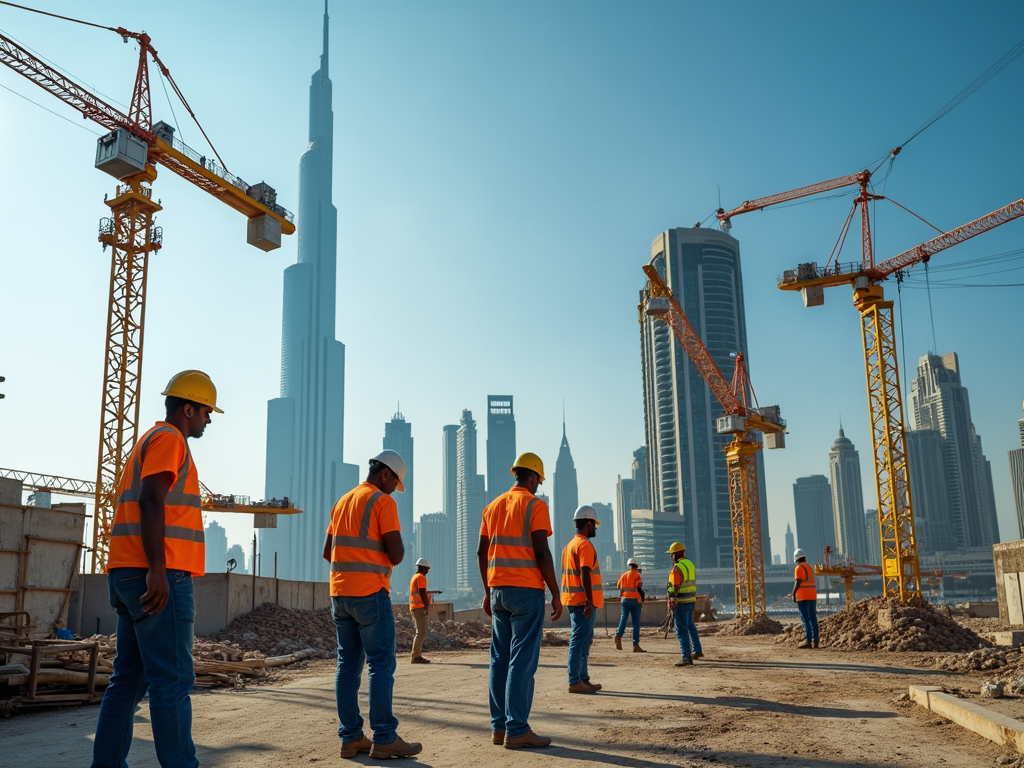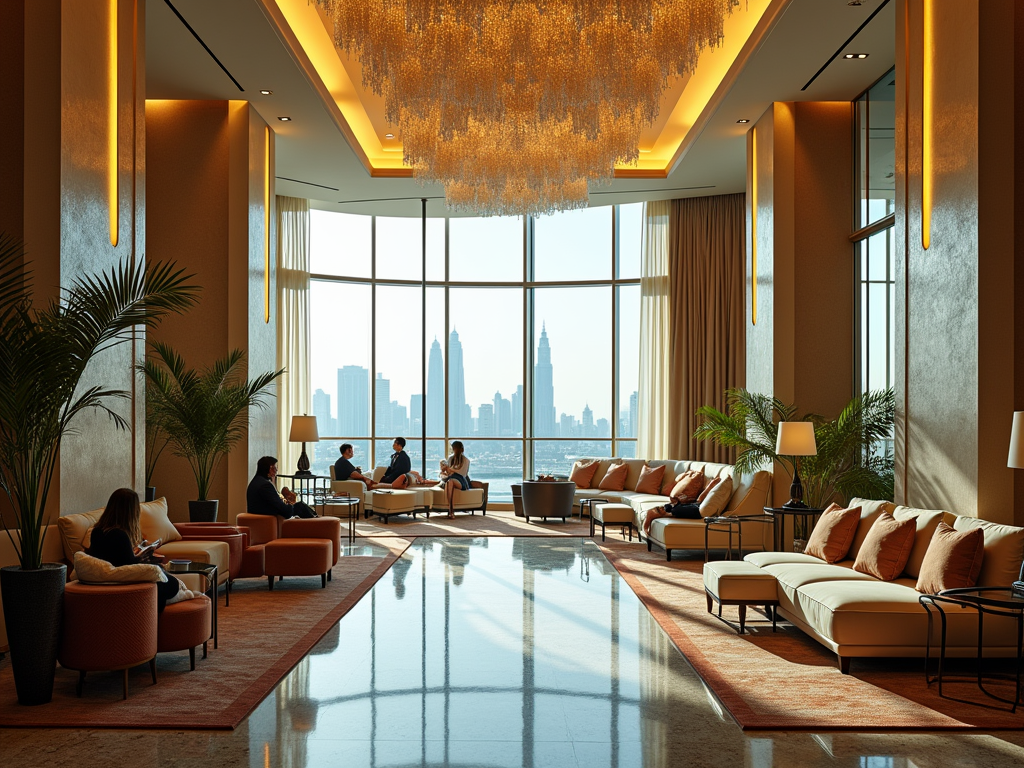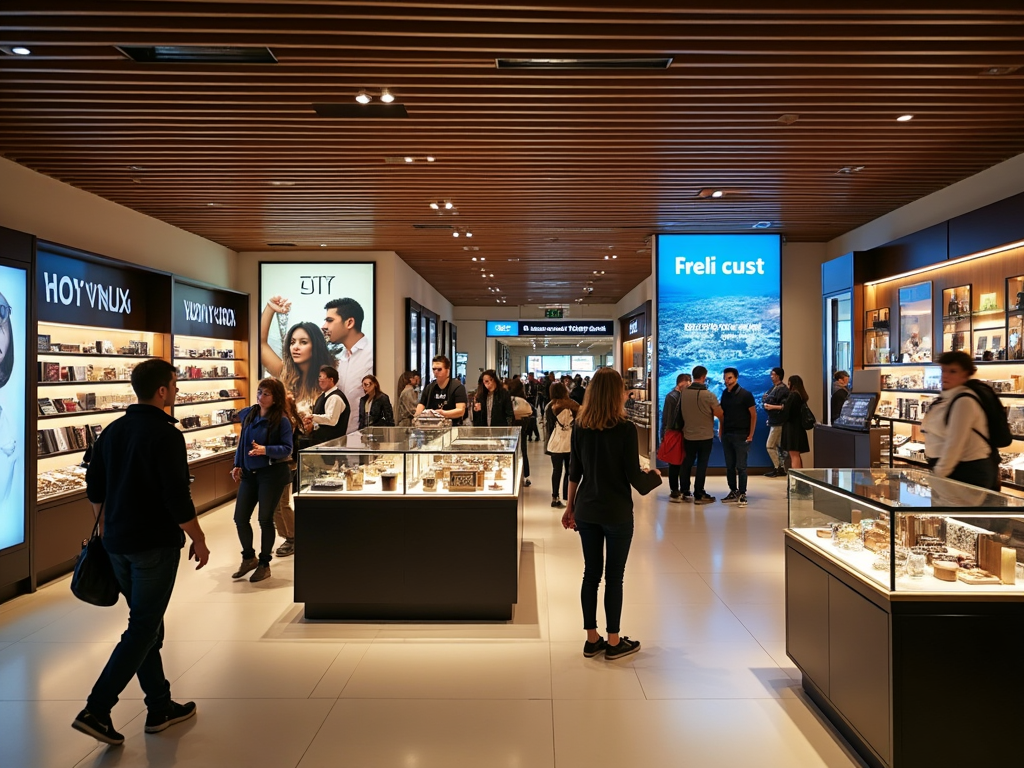How Dubai’s Real Estate Development Is Fueling Economic Growth
Dubai’s real estate development plays a pivotal role in driving its economic growth, transforming the emirate into a global hub for business, tourism, and innovation. The rapid expansion of the real estate sector is not just about skyscrapers and luxury villas; it’s a comprehensive strategy that encompasses investments in infrastructure, job creation, and international competitiveness. This multifaceted approach has attracted foreign investments and bolstered local businesses, establishing the UAE as a dominant player in the global economy. Moreover, the ongoing projects and developments serve as a catalyst for various ancillary sectors, significantly impacting the overall economic landscape.
The Infrastructure Boom

One of the main contributors to Dubai’s economic growth through real estate development is the massive investment in infrastructure. The city has witnessed substantial improvements in transport systems, utilities, and public services that complement real estate projects. Here are key infrastructural initiatives that highlight this growth:
- Dubai Metro: A sleek, driverless metro system that connects key locations.
- Dubai International Airport Expansion: Enhancements that position the airport as one of the busiest in the world.
- Sustainable Urban Development: Initiatives focusing on green buildings and smart city technologies.
- Logistics Hubs: Development of free zones and ports that facilitate trade.
- Road Networks: Expansions and upgrades to ensure connectivity and ease of transport.
The infrastructural boom facilitates easier access to various parts of the city and the UAE, thereby attracting tourists and investors alike. Additionally, the focus on sustainability ensures that future developments are environmentally friendly, catering to the global call for green architecture.
Job Creation and Economic Diversification

The real estate sector is a major source of employment in Dubai, providing jobs across a diverse range of fields such as construction, engineering, architecture, and property management. This job creation is essential for Dubai’s economy, as it supports the influx of expatriates looking for opportunities in a thriving market. The employment opportunities can be summarized as follows:
- Construction Workers: Thousands of jobs in labour and skilled trades.
- Professional Services: Opportunities for architects, engineers, and project managers.
- Property Management: Roles in real estate management and leasing.
- Financial Services: Careers in investment consulting and real estate financing.
- Hospitality Jobs: Positions in hotels and services supporting residential areas.
This job diversification not only supports economic stability but also contributes to the overall resilience of the emirate’s economy, reducing its dependence on oil and servicing sectors.
Dubai’s real estate market has become a magnet for foreign direct investment (FDI), attracting investors from various countries eager to capitalize on its lucrative opportunity landscape. Investment-friendly policies, tax exemptions, and a stable political climate create an environment conducive to foreign investments. The primary factors attracting international investors include:
- High Returns: Dubai offers attractive rental yields compared to global averages.
- Freehold Ownership Options: Laws allowing expatriates to own property freehold.
- World-Class Amenities: High standards of living with luxury facilities.
- Robust Legal Framework: Strong regulations protecting investor rights.
- Strategic Location: A gateway between Europe and Asia, ideal for business operations.
This influx of foreign capital not only boosts the real estate sector but also supports local businesses and jobs, further intensifying Dubai’s economic growth trajectory.
Tourism and Hospitality Growth
The intertwining of real estate and tourism is particularly evident in Dubai, where luxury hotels, entertainment complexes, and shopping malls are essential to its allure as a tourist destination. This synergy enhances economic performance significantly by increasing visitor numbers and spending. Key aspects include:
- Luxury Hotels and Resorts: Developments like Palm Jumeirah host globally recognized hotel brands.
- Entertainment Districts: Areas like Dubai Marina and Downtown Dubai attract millions of visitors.
- Shopping Malls: Iconic venues such as The Dubai Mall contribute to retail and entertainment revenues.
- Events and Festivals: Hosting international events bolsters the tourism sector significantly.
- Residential and Mixed-Use Developments: Offer accommodations and amenities for tourists and expatriates.
The symbiosis of real estate and tourism thus enhances not just the attractiveness of Dubai as a travel destination but significantly augments its GDP, enabling sustained economic growth.
Conclusion
In conclusion, the ongoing real estate development in Dubai is a powerful driving force behind the emirate’s economic growth. From advanced infrastructure to job creation and foreign investments, the real estate sector continues to shape Dubai’s future. The synergy between real estate, tourism, and economic diversification creates a resilient and dynamic economy adaptable to global changes. As Dubai invests in its future developments, maintaining a sustainable approach will be critical for ensuring long-term growth and prosperity.
Frequently Asked Questions
1. Why is Dubai’s real estate sector so important for its economy?
Dubai’s real estate sector is crucial as it drives substantial investments, creates jobs, attracts foreign capital, and supports tourism, forming a backbone of its economic growth.
2. What role does foreign investment play in Dubai’s real estate market?
Foreign investment significantly boosts the real estate market by introducing capital, stimulating job creation, and enhancing the overall economic landscape of Dubai.
3. How does real estate development impact job creation in Dubai?
Real estate development generates employment across multiple sectors, including construction, design, management, and hospitality, contributing to Dubai’s low unemployment rate.
4. What are some of the major infrastructure projects in Dubai?
Major infrastructure projects include the Dubai Metro, Dubai International Airport expansion, fully sustainable urban developments, logistics hubs, and upgraded road networks.
5. How does tourism influence Dubai’s economic growth?
Tourism fuels Dubai’s economy by attracting visitors who contribute to retail, hospitality, and entertainment sectors, further driving demand in the real estate market.


